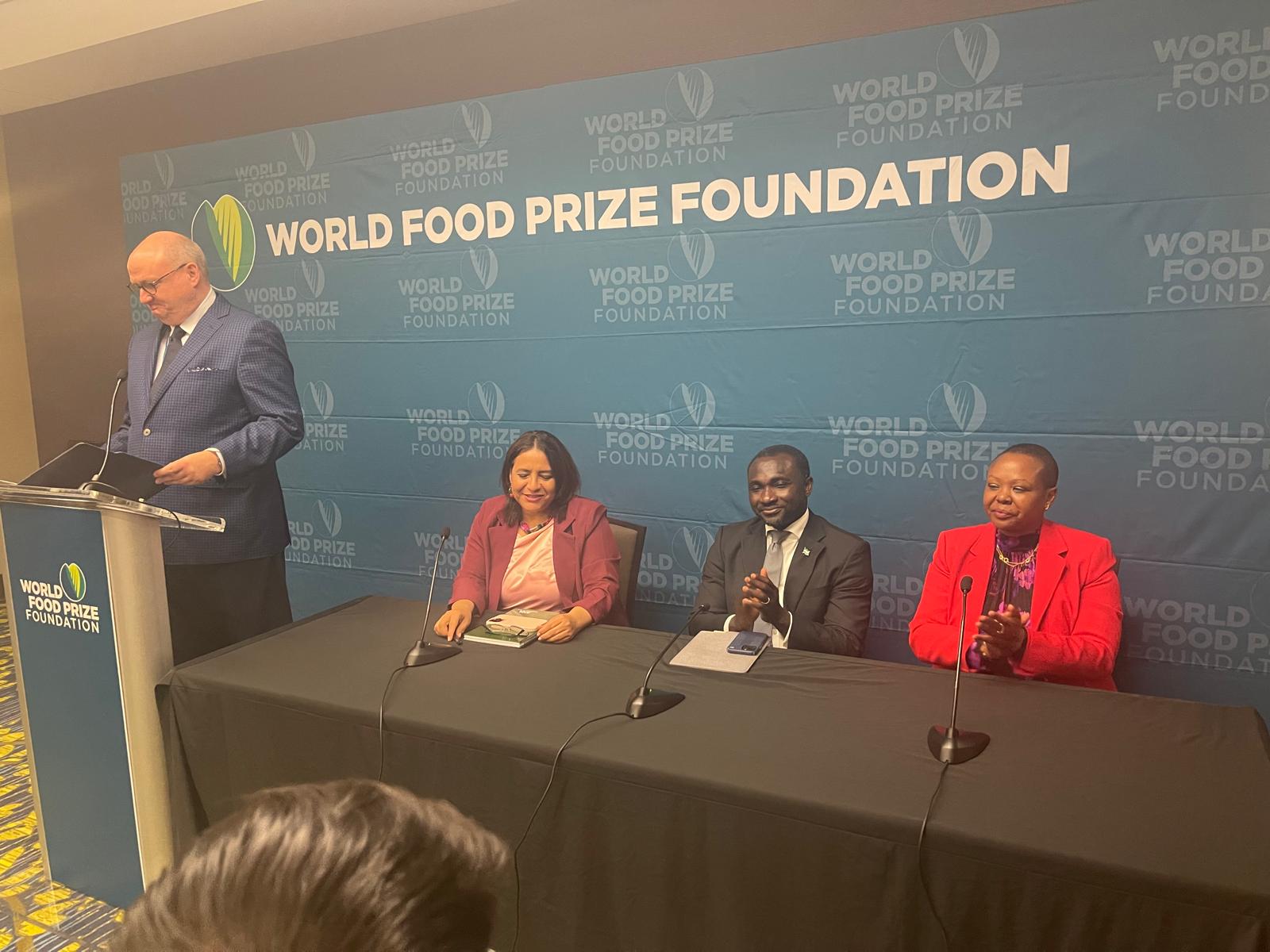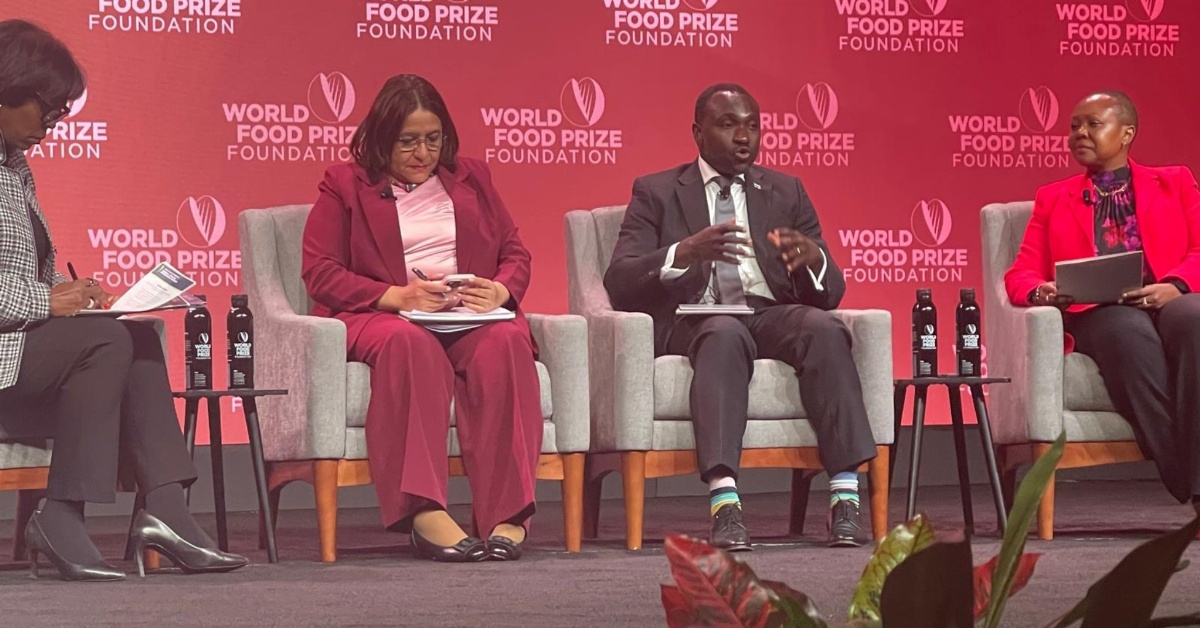Sierra Leone’s Minister of Agriculture and Food Security, Dr. Henry Musa Kpaka, participated in a panel discussion on diplomatic support to alleviate food insecurity, primarily triggered by conflict and climate change.
Minister Kpaka was a distinguished speaker and honored guest at the 2024 Norman Borlaug International Dialogue organized by the World Food Prize Foundation in Iowa, United States of America.
According to Dr. Kpaka, Sierra Leone is making frantic efforts to build partnerships for the transformation of the food system in the country.
Dr. Kpaka brought to the attention of his audience that a Sierra Leonean, Professor Monty Jones, had won the prestigious World Food Prize that seeks to elevate innovations and inspire actions to increase the quantity, and quality and availability of food for all, with the support of agricultural scientists, and scholars whose work has increased and impacted global food security.
“Solutions are home grown but needs to cross boundaries, since certain parts of the world do not have the idea and know-how “, emphasizing that African youths are mostly unemployed and needs to be unlocked through the transformation of agriculture.
According to Dr. Kpaka, the African continent is still yet to tap usefully into the opportunity of free trade. He said Sierra Leone is partnering with Organizations in the ECOWAS region, and in their declarations have outlined 10 concrete areas in designing programs to promote food security.
“In Sierra Leone, the staple food rice is imported, and it is costing over $200 million. The Feed Salone project is the flagship of the President, and agriculture is the engine for national growth, thereby creating more jobs for the youths in the country. And in doing so, the government is seeking partnerships to learn from, especially the soil, the type of fertilizers and types of nutrients available”, stressing that working with stakeholders is key – farmers and the private sector to achieve food sufficiency .
The Minister of Agriculture and Food Security reiterated that achieving food systems transformation requires bilateral agricultural trade with neighboring countries.
With lessons learned, Dr. Henry Musa Kpaka said the government is encouraging importers of rice to participate in the rice value chain in the country, where a clear road map was designed and shared with the President. He further said that it is difficult to keep to ultimatums with the importers – difficult to make hard decisions since the local production or yield is yet to meet the demand of the people.
At the Press Conference in Room 104 of the Event Center, Minister Kpaka mentioned the barriers encountered with stakeholders, and other interest groups that are bent on thwarting the efforts in achieving food sufficiency.

Dr. Kpaka amplified the need for the transformation of raw materials that will boost economic growth, instead of transferring raw materials that promotes high dependency on other countries, further advancing for financial policies that will give loans to farmers at low rate.
In his conclusion, Dr. Kpaka argued that value addition should be strengthened that will allow to go up the value chain – with US buyers and other markets. He said the private sector should be encouraged to build technology, irrigation.
“Credible partners are needed to establish better relationships”, Hon. Kpaka concluded.
On the panel with the Sierra Leone’s Minister of Agriculture were the Minister of Agriculture of Honduras, Laura Elena Suazo Torres , and Ambassador Kanzo of Tanzania.











